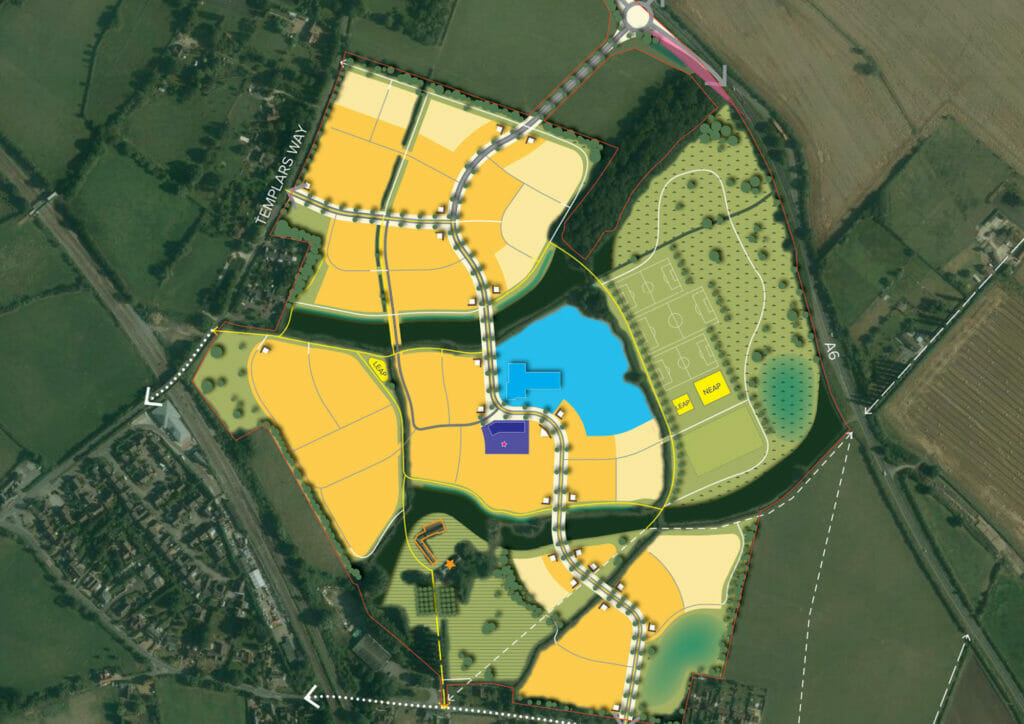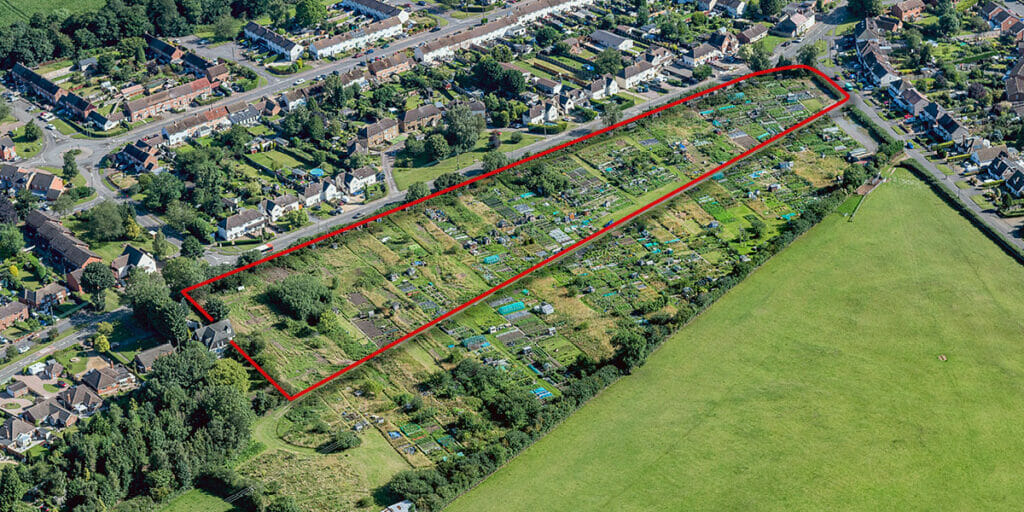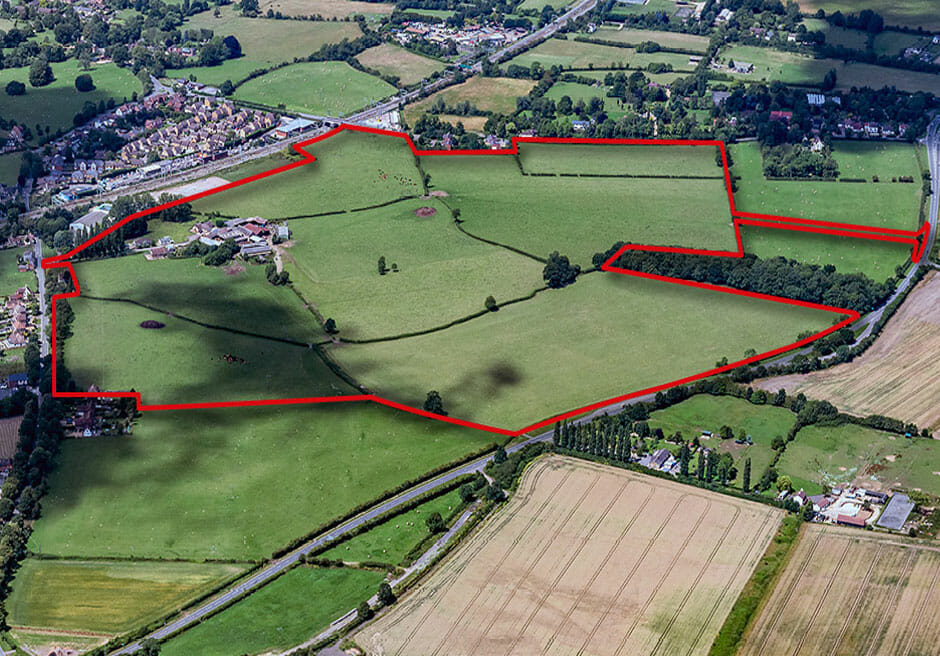
The claim that land banking is to blame for the prevention of new homes being built across the country has once again been debunked in new research led by planning consultancy Lichfields. Thanks to the release of their latest report ‘Tracking Progress’, Lichfields have reached the conclusion that the annual reports released by the Local Government Association, which will often support this myth, contain many flaws. Supporting similar research which was released by Sir Oliver Letwin and others. Here at Rosconn Strategic Land, debunking the myth of land banking is important in helping to highlight the genuine issues land developers and house builders face when dealing with the planning system. We’ve taken a look at the latest press release from HBF to understand exactly what this research has found.

The approved scheme will deliver new green infrastructure, outdoor play space, high quality internal routes, and 30% affordable housing on this sustainably located, 8.3-acre site.
Rosconn proactively worked with its appointed consultants and Rutland County Council to address technical feedback early in the planning process resulting in a robust, de-risked masterplan that will form the basis for a high-quality residential development. The project will also contribute significantly to meeting housing need in Rutland in a location easily accessible to a wide range of amenities situated within the attractive market town of Oakham.
Following a period of sustained early-marketing, Rosconn achieved a rapid, unconditional sale to Bellway Homes within five business days of receiving the outline planning permission and looks forward to seeing the delivery of much-needed new homes in the area.
What is Land Banking?
To understand why this is a big debate within our industry, it is important to define land banking.
Land banking is commonly described as the owning of land with planning permission, which is not built upon. Rather, the developer will wait for the value of land to increase and then sell the land on for profit. This suggestion is used frequently to make accusations against developers, arguing that this is a key reason for the lack of new homes being built in the UK.
Lichfields commissioned by LPDF and HBF
To help debunk this myth, the Land Promoters and Developers Federation (LPDF), alongside the Home Builders Federation (HBF), commissioned Lichfields to undertake this research. Investigating how the pipeline of sites for housing development compares with what the government requires to meet its goal of 300,000 net additional new homes per annum in England.
The Report – ‘Tracking Progress’
The report reviews various data to detail what happened to the planning permissions across five local planning authorities (looking at specific case studies) over a five-year period. These areas were Central Bedfordshire, London Borough of Wandsworth, Cheshire East, Colchester, and Stratford-on-Avon. Highlighting the challenges of the planning and development processes. Detailing how this process and the time it takes to progress a development site through various regulatory stages, can be used to explain the reasons for a lack of housing output.
Click here to View the Report.
From this research, Lichfields were able to calculate that after five years one might expect roughly:
3% to 5% of homes granted permission will lapse or stall;
10% to 15% of homes granted permission will be superseded at a later date by a fresh permission (and not necessarily harming the pace of delivery);
35% to 50% of homes granted permission will have been delivered;
35% to 50% of homes granted permission will remain extant but on sites delivering on a phased basis beyond five years.
The report also uncovered key issues within the annual research carried out by Local Government Association (LGA), which is released every year. Stating The LGA double count schemes which are subject to multiple planning permissions, due to builders having to make re-submissions for final approval. Undermining the 1.1m figure, the number of homes the LGA claimed to hold planning permission which are as of yet unbuilt. This figure was suggested in the LGA’s latest report (May 21) and was used to criticise developers for ‘hoarding’ land.
Highlighting issues with the current planning system
In their case study research, Lichfields found quite major differences between regions. Finding there is a large difference in the number of planning permissions being granted in some regions, compared to others. Often where permissions are granted, these are found to be granted in areas where people wouldn’t necessarily want to live. The report also highlights the pressures of affordability in particular areas such as in the South East region. Lichfields found, in this region, the local authorities do not have deliverable local plans and have the biggest gap between homes with planning permissions and the number required by government.
A response from HBF and LPDF
Andrew Whitaker, planning director at the HBF said: “This myth that house builders land bank has been dismissed by a growing number of independent reviews. As this latest research demonstrates, aggregating numbers of outstanding planning permissions misses the ‘story’ behind each and every site that comes forward for development…”
“…Planning system issues remain the biggest barrier to the industry delivering desperately needed homes and the Government’s housing ambitions…”
Paul Brocklehurst, chairman of the LPDF, said: “This research highlights the gross over-simplification in the analysis by the Local Government Association frequently quoted in the national press and by many politicians regarding the ‘stock’ of unimplemented consents. Building on Lichfields initial Taking Stock report this latest analysis further highlights the desperate need for there to be an increase in planning consents in the short term if we are to achieve the Government’s target of building 300,000 new homes per annum…” The full response from Andrew Whitaker and Paul Brocklehurst can be read here.












